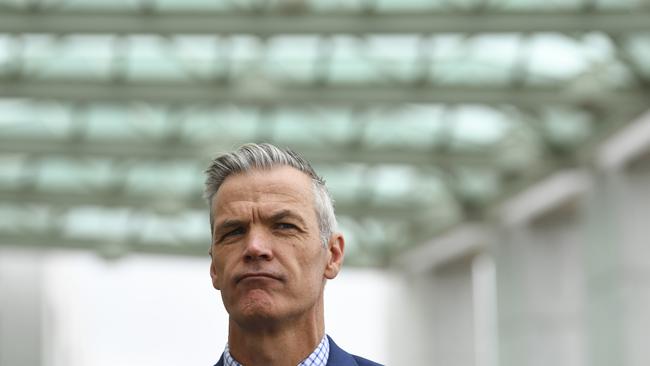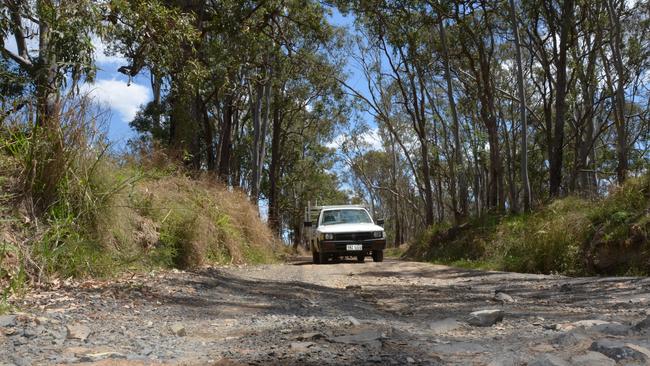New alliance demands billions to fix broken rural roads
An alliance of key agriculture, logistics and council groups has formed to demand billions in emergency funding to fix the broken regional road network.
AN emergency $5.5 billion road funding package is needed to repair a broken regional roads network causing safety concerns and widespread disruption, according to a landmark coalition of farmers, trucking companies and local councils.
The newly formed Rural Road Alliance says the federal government must include the funding in the May budget to rapidly repair the “catastrophic” damage caused by recent flooding and other extreme weather events.
The alliance is made up of the National Farmers’ Federation, GrainGrowers, the Australian Local Government Association and the Australian Livestock and Rural Transporters Association.
More than 82,000 kms of roads were affected by recent flooding across Victoria, New South Wales, Queensland and South Australia, while Western Australia was devastated by Cyclone Seroja.
NFF chief executive officer Tony Mahar said the situation demanded a “substantial, long-term commitment”.
“We can’t be left driving on decimated roads once the politicians and news cameras move onto the next disaster,” Mr Mahar said.

Under the alliance’s proposal, the almost $5.5 billion would include:
A ONE-off injection of $1 billion over four years for regional councils to rebuild roads “to a standard more resilient to future disaster events”;
$800 MILLION a year over four years towards the Federal Department of Infrastructure’s Roads to Recovery Program;
$300 MILLION a year over four years to address first and last mile freight productivity; and
TARGETED funding through the Roads of Strategic Importance program to improve the long-term climate resilience of freight networks.
ALRTA executive director Mat Munro said the damage was already undermining
productivity and safety in the regions.
“Severely damaged roads are dramatically increasing the time and cost of moving freight to
and from our rural production centres,” he said.
“It is harder on our vehicles, it is harder on our drivers and it is harder on our livestock.”
According to Treasury estimates, natural disasters and extreme weather events cost the Australian economy $5 billion last year.
The group’s funding submission will argue that stemming the rapid deterioration of Australia’s rural road network will reduce the financial burden of predicted increasing climate events.
There have been 23 floods and hundreds of emergency declarations made across 277 LGAs.

ALGA CEO Matt Pinnegar said the ongoing impacts of climate change should prompt a
fundamental shift in the way Australia funds, delivers and maintains its roads.
“The flooding, fires and cyclones we’ve seen over the past few years are unprecedented.
What we need now is unprecedented funding – not just to repair our roads, but to strengthen
them for future events,” Mr Pinnegar said.
GrainGrowers chair Rhys Turton said the network was at breaking point with roads repaired in recent months already crumbling.
“It’s thrown a challenging grain harvest into disarray as farmers and transporters struggle to move grain from paddock to port,” Mr Turton said.




